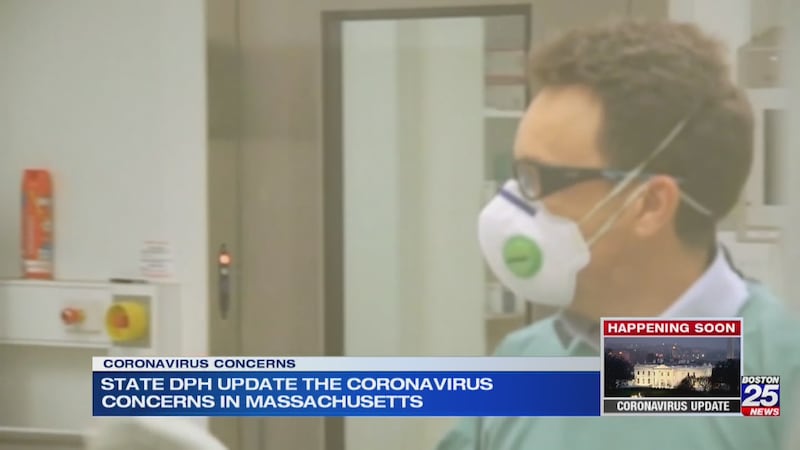BOSTON — The global outbreak of COVID-19, or more popularly known as coronavirus, has killed thousands across the world since it originated from Wuhan, China last year.
Contingency plans have already taken place in many countries, where officials are trying to help curb the spread of the virus before it becomes an even bigger problem.
Stocks have plummeted in fear of what this could bring and uncertainty over finding a possible vaccine for it.
As worried as the population should be and doctors say you should be doing everything you can to protect yourself, data shows that 98% of those who have contracted the disease have survived - in fact, 80% of people who have gotten sick have had such mild cases and never saw a doctor for it.
Massachusetts General Hospital Dr. Paul Biddinger says it’s likely many people have contracted coronavirus but mistaken it for the flu and not sought treatment for it.
“There are so many myths on the Internet right now,” said Dr. Biddinger.
A huge myth going around is that people shouldn’t order anything from China as the virus could be transmitted through packages. Biddinger says that’s not true at all.
“We are still learning about how hearty the virus is but the longest right now that we think it lives on a surface is about a week, the general shipping time from items from China tends to be longer than that and it is really unlikely to be on any sort of surface coming from China,” said Biddinger. “I really would not offer any advice of hesitation for people opening up packages that is an extraordinarily unlikely route of transmission.”
Another common myth is that people should be wearing surgical masks - another false claim. Unless you’re sick, there’s no reason to wear the masks, which won’t protect you from contracting the disease.
“We know the mask are important for people who are sick,” said Biddinger. “They decrease the amount of respiratory droplets that people can exhale and they are protected for people around sick individuals."
Not everyone is at the same risk of dying from the disease, according to Biddinger. While the virus can and has claimed the lives of thousands of people, that doesn’t mean it’ll happen to everyone who gets it.
“The people who are a greater risk of needing intensive care unit or of death or older patients, patient with other illnesses like diabetes, respiratory illness,” said Biddinger.
One thing he will say, however, is that coronavirus and the flu are very hard to tell apart. “Both have fever, both are respiratory, meaning cough and trouble breathing so, unfortunately, we have to rely on lab testing. If we get a lab test it proves positive for an alternative diagnosis like flu it means it will not be coronavirus.”
Of those who do seek care, doctors say most people recover within about two weeks. For those who will fall seriously ill, most will present symptoms in the first week, about seven to 10 days after exposure.
The longest possible incubation period is two weeks, so if people have not shown symptoms in two weeks, chances are they will not get infected.
When it comes to prevention, Biddinger and others say personal hygiene is the best and easiest way to avoid getting sick and spreading the disease.
“Wash your hands, cover your cough, basic hygiene practice,” said Biddinger. “Transmission decreased by 30% by just using soap and water and washing. You know that’s not fun to talk about it’s so important. There are so many myths on the Internet right now both about where this infection came from and how people should treat themselves. It is important to know there are no proved therapies beyond our standard ibuprofen, Tylenol, hydration and rest therapies."
© 2020 Cox Media Group






